Mehedi Al Amin from Dubai, UAE
Global leaders reached the consensus and adopted the decision of transitioning away from the fossil fuel to enable the world to reach net zero in the official documents without having clear pathway and actions for achieving this goal.
Fossil fuel included in final document on Global Stocktake for the first time in the last day of 28th session of United Nations Framework Convention on Climate Change, commonly known as COP28.
COP28 president, also the Industry and Advanced Technology minister of United Arab Emirates, Sultan Ahmed Al Jaber termed this inclusion a historic achievement which made his country proud. But the experts and civil society claimed the new path to transition away from fossil fuels marred by lack of finance and loopholes.
The target to keep global temperature rise within 1.5 degree also remains alive. To achieve the goal the conference adopted eight actions. The conference’s final documents call for transitioning away from fossil fuels in energy systems, in a just, orderly and equitable manner.
That also calls for accelerating action in this critical decade for transitioning to achieve net zero carbon emission by 2050 in keeping with the science.
It calls tripling the global renewable energy capacity and doubling the average global annual rate of energy efficiency improvements by 2030. However, the conference didn’t call for phase-out of coal rather called for accelerating efforts towards the phase-down unabated coal power though the coal is considered the dirtiest energy sources.
It also called for accelerating the reduction of emissions from the road transport by deploying zero and low carbon technology. And, mentioned technology transfer without any concreate direction.
During the concluding session of the conference, Sultan Ahmed Al Jaber said, “We have worked hard to secure a better future for our people and planet. We should be proud of our historic achievement.
Prime minister’s special envoy on climate change Saber Hossain Chowdhury in the concluding session, said, “I am sure there will be issues. Which will require further clarifications. It will require further discussion. And that the fundamental principal that we are going to have is the 1.5 (Limiting global average temperature rise within 1.5-degree from pre-industrial age to 2,100). This is the spirit that we take out from here.”
“We want to go out must be with the solution. We are on the path to solution through COP28. No text (document) is perfect. This text is also not perfect, but it lays the foundation.
“Of course, we would have more, more specific, more concreate steps, he added.
The conference also called for accelerating and substantially reducing non-carbon-dioxide emissions globally, including in particular methane emissions by 2030.
What experts say
Experts said, the lack of finance and the loopholes of false solutions included in the agreement. It leaves more questions than answers on how to ensure a fair and funded transition that is based on science and equity.
According to prominent climate experts across the world, this road to transition away from fossil fuels will be at risk from the start because yet again there is no agreement on how this energy transition will be funded.
There is no agreement on how the developed nations who are the historical polluters will take responsibility for ensuring that justice and equity is delivered for the vulnerable peoples and countries in the global South.
Harjeet Singh, Head of global political strategy at Climate Action Network International: “After decades of evasion, COP28 finally cast a glaring spotlight on the real culprits of the climate crisis: fossil fuels. A long-overdue direction to move away from coal, oil, and gas has been set. Yet, the resolution is marred by loopholes that offer the fossil fuel industry numerous escape routes, relying on unproven, unsafe technologies.
“The hypocrisy of wealthy nations, particularly the USA, as they continue to expand fossil fuel operations massively while merely paying lip service to the green transition, stands exposed. Developing countries, still dependent on fossil fuels for energy, income, and jobs, are left without robust guarantees for adequate financial support in their urgent and equitable transition to renewable energy.
Joab Okanda, Senior Climate Advisor, Christian Aid: “We now need to see rich countries following up their warm words about wanting a fossil fuel phase out with actions to actually bring it about and end their use of coal, oil and gas by the end of this decade. Rich fossil fuel using countries will need to decarbonise first, with middle income countries going next and then the poorest countries after that.”
Tasneem Essop, Executive Director, Climate Action Network International: “The polluting countries and companies must deliver the funding to achieve a just and equitable transition away from fossil fuels. The COP outcome opened the road for a fossil fuel free world, but this road is full of potholes, dangerous distractions and if allowed, could lead to a dead end. We are determined to fight for securing international support from the rich nations for the developing world as a key enabler for more ambitious commitments and a just and equitable transition to a fossil free future.”
Phasing out fossil fuel subsidies
The conference also called for phasing out inefficient fossil fuel subsidies that do not address energy poverty or just transition, as soon as possible.
M Zakir Hossain Khan, Chief Executive of Change Initiative said, “The text `calls to contribute` for meaningful actions, but left the mechanism open and optional, not obligatory especially for the giant fossil fuel companies as they enjoy the immunity to meet the targets while invest in the least developed countries. Without imposing progressive carbon tax, the 1.5-degree pathway will not be achieved.
“A country specific, time-bond target of withdrawal of public subsidies to fossil fuel should be declared and at least 50% subsidies must be reduced by 2030 in accordance with science, he said.
Bangladesh can be benefited from Loss and Damage Fund
Loss and Damage fund established last year. And on the first day of the conference operational mechanism accepted by the nations. World Bank will play the role of secretariate of this fund. They will act as secretariate for four years. A commitment of more than $700 million received so far for the fund. The money will be allocated to the countries according to their vulnerability. And no sanction can create a bar for any country to access the fund.
Hafij Khan, an expert member of Bangladesh delegation said, “Bangladesh can lose LDC status to middle income country. But the fund will be disbursed according to the vulnerability. Bangladesh is the seventh vulnerable country to climate change. Thus, we will get the priority to access the Loss and Damage Fund.
World Bank will not take the decision. The decision will be taken by a board and the board will closely work with both the vulnerable countries and the World Bank.
Slumped on developed nations in finance document
Notes with deep regret that the goal of developed country Parties to mobilize jointly $100 billion per year by 2020 in the context of meaningful mitigation actions and transparency on implementation was not met in 2021, said in the document related to climate finance.
The conference document calls developed country Parties to fully deliver on the $100 billion per year goal urgently and through 2025 and further enhance the coordination of their efforts to deliver the goal.
Iskander Erzini Vernoit, Director, IMAL Initiative: “COP28 is a COP of commitments which are at once unprecedented and hollow. History will judge COP28 for whether the unprecedented commitments it makes are ultimately supported by the financing required. The goal to transition away from fossil fuels, the Global Goal on Adaptation, the Loss and Damage Fund all require funding from developed countries responsible for the climate crisis. The quantity and quality of the New Collective Quantified Goal on climate finance, to be agreed next year, will be the test of the strength of the commitments made here in Dubai."
The conference documents also included calls for accelerating zero- and low-emission technologies, including, inter alia, renewables, nuclear, abatement and removal technologies such as carbon capture and utilization and storage, particularly in hard-to-abate sectors, and low-carbon hydrogen production.
According to document on Global Stocktake stated that despite overall progress on mitigation, adaptation and means of implementation and support, Parties are not yet collectively on track towards achieving the purpose of the Paris Agreement and its long-term goals to achieve net zero.




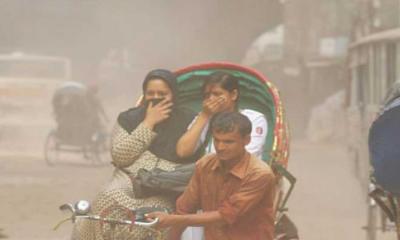
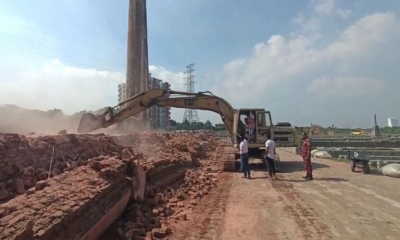
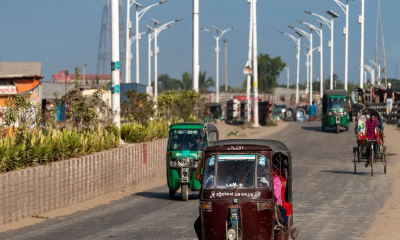
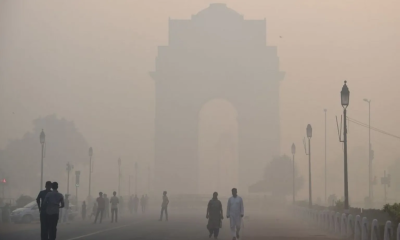
-20251226051932.jpeg)
-20251222051606.jpeg)



-20260217073221.webp)


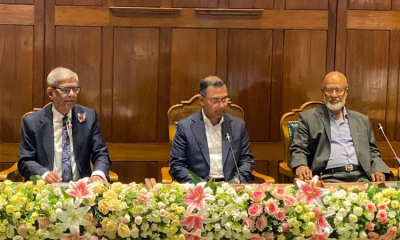

-20260216115008.webp)



















